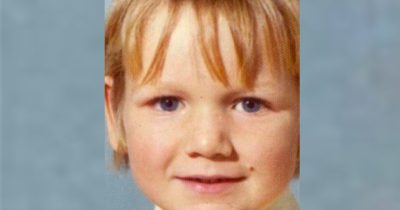
Intelligence doesn’t always come wrapped in polished routines and perfect words. Often, it hides behind behaviors the average person might call strange, awkward, or downright irrational. But what if those quirks are signs of brilliance?
Scientists and psychologists have long been fascinated by how the smartest among us function daily. Their odd habits aren’t just random – they’re often tied to how their unique brains process the world. From muttering to themselves to thriving in chaos, these behaviors reveal a deeper story.
Let’s unlock the secret world of genius – the strange habits intelligent people live by, misunderstood by many but validated by science.
1. Messy Spaces
To many, a cluttered space suggests a cluttered mind. But to highly intelligent individuals, it’s often the opposite. Messy desks, scattered books, and chaotic environments aren’t just disorganization – they’re mental maps of creativity in motion.
“Disorderly environments seem to inspire breaking free of tradition, which can produce fresh insights. Orderly environments, in contrast, encourage convention and playing it safe,” psychological scientist Kathleen Vohs said, according to the Independent.
The piles of stuff represent open tabs in their mind – ideas waiting to connect. While most strive for minimalism, intelligent people sometimes need visual chaos to spark the abstract.
2. Self-talk
Catching someone in the middle of a conversation – with no one else around – might look like a red flag. But self-talk is a sign of mental clarity, not confusion.
Albert Einstein was known to repeat sentences and ideas out loud to himself. Modern neuroscience agrees this isn’t madness, but mental organization.
In a 2017 study, “Making Sense of Self Talk,” researchers write: “The self-talk we engage in may be overt or covert, and is associated with a variety of higher mental functions, including reasoning, problem solving, planning and plan execution, attention, and motivation.”
Verbalizing thoughts helps smart individuals cement ideas, analyze scenarios, and plan – often faster and more effectively than silent thought.
3. Night owls
“Early to bed and early to rise” isn’t the anthem of the intellectually gifted. Many intelligent people report peak productivity in the dead of night. It’s not rebellion – it’s neurological rhythm.
The quiet of the night removes distractions. No buzzing notifications, no social obligations. Just pure thought. Some even prefer polyphasic sleep – working in intense mental sprints between power naps. Though unconventional, it syncs perfectly with how their brains fire.
4. Lost in thought
Staring into space might seem like zoning out, but daydreaming is often high-level processing in disguise. Intelligent people use it to simulate future outcomes, analyze memories, and innovate creatively.
Research published in Nature Scientific Reports identifies the brain’s “default mode network,” which activates during mind-wandering, helping us solve complex problems subconsciously.
So, while you think someone is lost in thought, they’re likely mapping out the next big idea.
5. Overthinkers
Smart minds overthink not because they’re indecisive – but because they’re wired to weigh every outcome. Ordering food or replying to a text might take longer because they mentally simulate dozens of possibilities.
It can be exhausting, even paralyzing. But it’s this tendency that leads them to avoid mistakes others might stumble into. For them, the “right” choice isn’t obvious – it’s a puzzle.
6. Not into small talk
For intelligent people, superficial chit-chat is mentally draining. They crave depth – conversations about ethics, the cosmos, the future of AI – not weekend weather.
As emotional intelligence expert Justin Bariso explains: “Small talk may seem like a comfortable way to pass the time…but it actually does more harm than good. It’s superficial, and it doesn’t allow for any real connection…But people crave that connection.”
That doesn’t mean they’re antisocial – they just value quality over quantity in communication.
7. Crave solitude
Time alone isn’t loneliness – it’s nourishment. Intelligent people often withdraw not to escape others, but to reconnect with their thoughts. Solitude provides the mental bandwidth to process ideas, explore new concepts, and recharge.
It’s during these quiet moments that many breakthroughs happen. To others, it may seem isolating. But to them, it’s essential.
8. Challenge Authority
Intelligent individuals don’t follow rules blindly. They ask “why” more than “how.” Authority, tradition, and status quo are merely starting points for critical examination.
Their skepticism isn’t rebellion – it’s curiosity, and that’s what drives innovation and reform. History’s greatest minds – from Socrates to Nikola Tesla – were labeled troublemakers for refusing to follow the crowd.
9. Routine rebellion
Most people build routines to simplify life. But smart people often tweak theirs endlessly. They experiment with different methods of working, eating, or learning – constantly searching for a better way.
To outsiders, it may look unstable. But for them, it’s optimization in real-time. They treat routines not as rigid systems, but as hypotheses to test and improve.
10. Emotionally distant
Intelligent people may come across as cold or aloof. In reality, they’re often deeply emotional – they just process things internally.
They pause, reflect, and analyze before reacting. This self-regulation makes them appear detached in moments of high emotion, but it’s actually a sign of strength. Instead of outbursts, they deliver measured responses – a sign of emotional maturity, not absence.
Understanding these traits not only demystifies genius but challenges us to embrace diversity in thought and behavior. Because sometimes, brilliance hides in the unexpected – in a cluttered desk, a silent stare, or a whispered conversation with oneself.
What weird habits do you associate with having? Please let us know your thoughts and then share this story so we can hear from others!
READ MORE
- Why sleeping with one foot out might be the key to rest
- Never throw away these 4 things after a loved one dies




